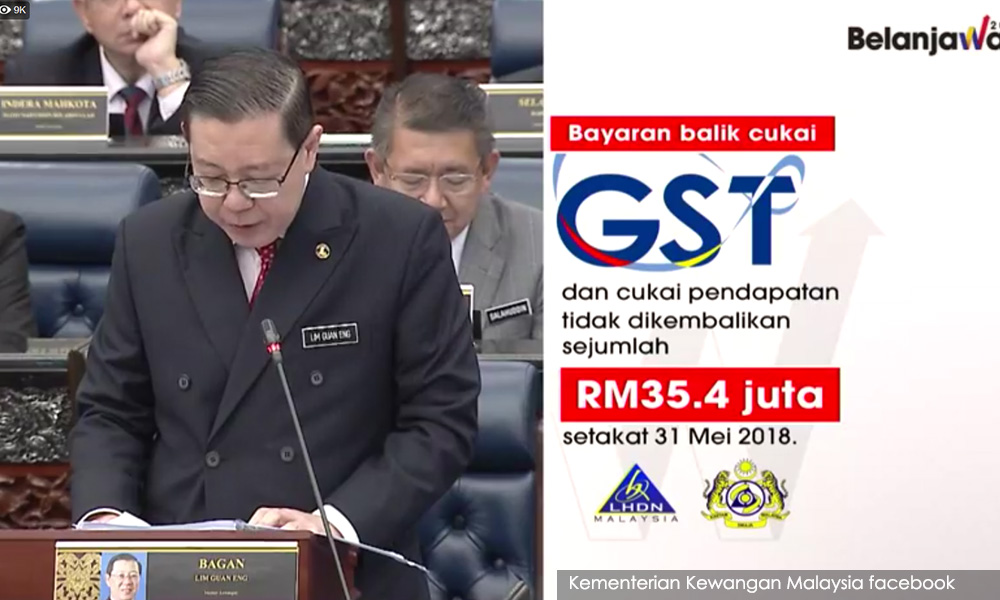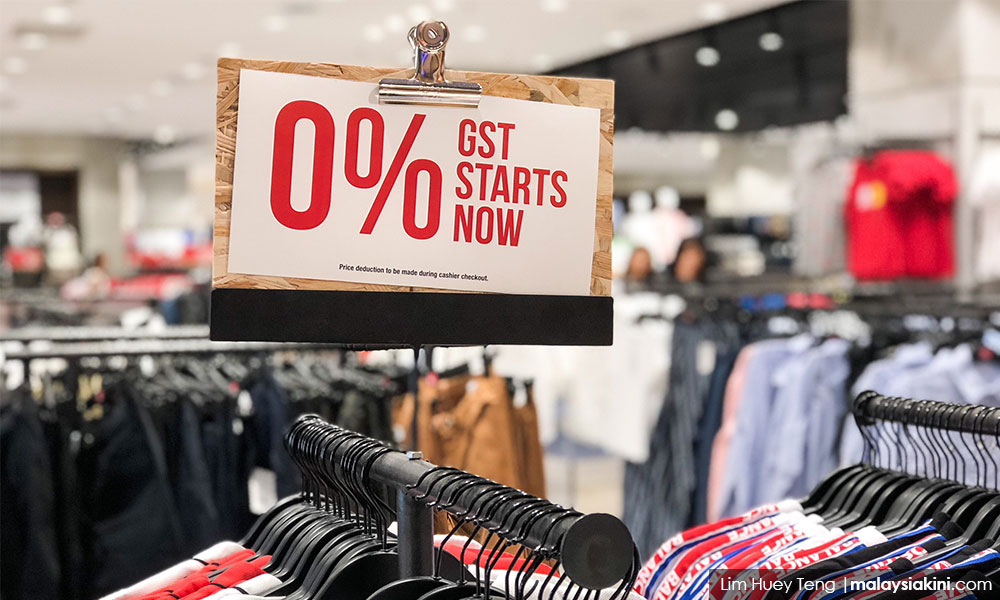Prime Minister Ismail Sabri Yaakob downplaying of possible early elections because of rising prices is welcome but even more significant is that he is considering reintroducing the goods and services tax (GST) which was removed prematurely and wrongly by the Pakatan Harapan government in 2018.
The reintroduction of the GST will not only provide a steady stream of revenue to the government and capture some tax lost, it would also compel all businesses to keep good accounting records and therefore help to ensure that tax evasion is less in future.
It’s a tax which is added on to the increase in value of the processed goods or services in incremental steps at every stage of adding value. It requires careful and full documentation of how the value is created and eventual revenue and costs for refunds of taxes on the inputs to be obtained.
Also, a system of exemption of over 200 goods and services, which was put in place when the tax was introduced in April 2015 went a long way to ensure that the poor are not needlessly burdened by the tax.
One of the first things that the Harapan government and then finance minister Lim Guan Eng did after taking power in May 2018 was to remove the GST. Along with a six-month exemption on sales and services taxes as well, it was a grave mistake which unnecessarily crimped government revenue when it needed it most.
Lim had used the scrapping of the GST as a major campaign platform, using children in a sing-song to decry the tax, and had maintained that this was a major reason for the rise in prices ahead of GE14. Nothing could have been further from the truth.
The GST was introduced in April 2015. That meant that most of the impact of increased prices already happened in 2015 with the full-year impact of the tax fully realised in 2016. Thus in 2018, the GST no longer had any impact on prices, as I explained in a column in March 2018 titled ‘Is GST responsible for rising prices?’

Its withdrawal was based entirely on a false premise. Lim ignored the appeals of the then head of Customs to keep the tax and lower the amount to 3% from 6% instead. Instead, he even refused to set the tax rate at zero and insisted the legislation for the tax be repealed completely.
What happened was the destruction of years, no, decades of work, as such a tax had been contemplated from as far back as the 70s as a means of widening the tax net and recapturing some income tax revenue which had been lost through evasion. Eventually, strong opposition by businesses to the tax was overcome and the tax introduced in April 2015. But after three and a half years of a successful implementation, it was dismantled in September 2018.
Setback
It’s worthwhile noting that some 170 countries around the world have some form of GST. By summarily destroying the tax, the work and infrastructure put in place have been lost in Malaysia. But if a firm decision to resurrect the tax is taken, then it may not be too difficult to revive the processes necessary.
As I wrote in the March article: “In fact, GST is a good tax in the sense that it taxes consumption - those who consume pay more, with essential goods and services exempted. It catches too those who evade income tax by taxing consumption because it is the rich who consume more and therefore spares the poor for whom many essential items are exempted anyway.
“Not only are the opposition’s assertions false, it appears that they don’t even want to help the poor by raising taxes from those who can afford it to help the development process. Who are the opposition helping by cutting GST? The poor? Certainly not.”
To see the GST in its right context, especially with respect to Malaysia, it is necessary to strip it of all its myths. Replacing the current services, generally 6%, with an equivalent of 6% of GST will not burden the poor because essential items will be exempted.
There was a long list of goods and services which were exempt from GST, which means price increases for these cannot be attributed to GST. This includes almost all food consumed by most people, transport costs, and many services, including education and health.
When GST was removed and the sales and service tax (SST) imposed instead at the same rate, it was estimated that revenue from this source fell by about half to around RM22 billion, indicating a revenue shortfall by about that amount.
That is a considerable gap to be filled but if the GST had continued to be there, not only would revenue have been higher by RM22 billion but would have risen along with the pace of economic activity.
Also, with the exemption on essential goods and services, it would have come from those who can afford to consume, thus reducing the burden on those who live at the margin.

If however, the government opts for a revenue-neutral model - it really should not - then it can be made possible by reducing the quantum of GST tax to 3-4% instead of the current SST of 6%. This may in fact help to reduce perceived price pressures but in effect, it reduces the tax on those who can afford it - inefficient from a tax point of view.
With the re-implementation of the GST, the confidence factor in the government will likely increase as government finances will improve and there will be more money available to channel to deserving areas.
The impact on the poor is negligible and the amounts will come from those who can afford it. Good record-keeping and cross-checking between Customs which collects SST/GST, and the Internal Revenue Department which collects income tax, will help ensure less tax evasion.
There is much to be gained and little, if any, to be lost by reimposing the GST. - Mkini
P GUNASEGARAM, a former editor at online and print news publications, and head of equity research, is an independent writer and analyst.
The views expressed here are those of the author/contributor and do not necessarily represent the views of MMKtT.




No comments:
Post a Comment
Note: Only a member of this blog may post a comment.